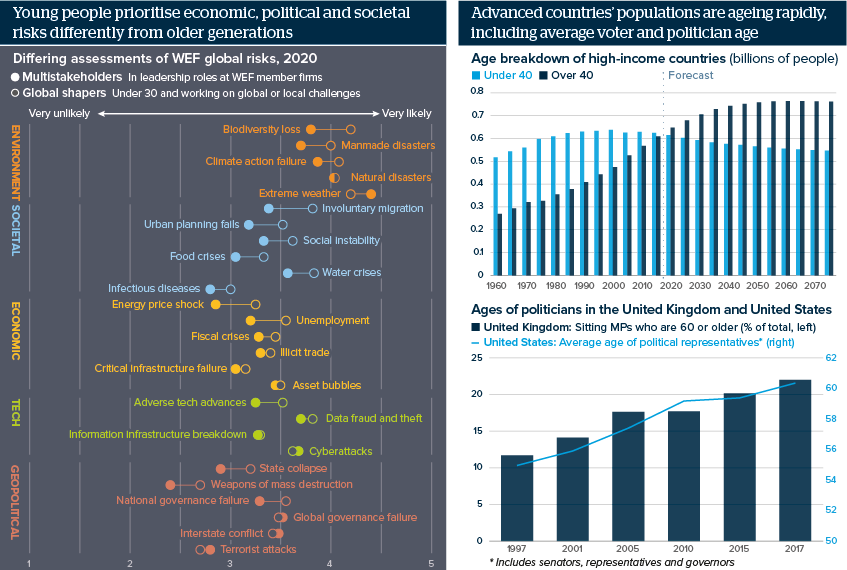Differing priorities of age groups polarise politics
There are more people over than under 40 in high-income nations; this could exacerbate political polarisation
Source: WEF Risks report, 2020; UN Population Prospects; American Leadership database; UK House of Commons Library research
Outlook
The World Economic Forum (WEF) surveyed more than 1,000 business leaders about global risks ahead of the Davos summit. In addition, the WEF also surveyed more than 200 'Global Shapers' aged under 30.
Both age groups rank environmental risks as their top five. Younger people are more concerned about climate action failure and biodiversity loss, but less about extreme weather, a more immediate risk.
The younger generation worry more about societal risks and unemployment. Tech, geopolitical and economic views show less divergence -- particularly data fraud, terrorism and asset bubbles.
Differing priorities among different age groups will drive political polarisation, and governments’ and corporates’ strategic goals may change as younger cohorts assume leadership roles.
Impacts
- Wealth is much more unequal than income worldwide and will remain far harder to tax, favouring older people in many nations.
- Millennials could inherit 30 trillion dollars by 2050 and are twice as likely to invest in funds pursuing social or environmental outcomes.
- The upcoming surge in baby boomer retirees will be an unprecedented global shock and could pressure bond and especially stock markets.
See also
- UK recovery plans could cut intergenerational inequity - May 12, 2020
- Differing demographic trends create chances and tests - May 22, 2019
- More graphic analysis
